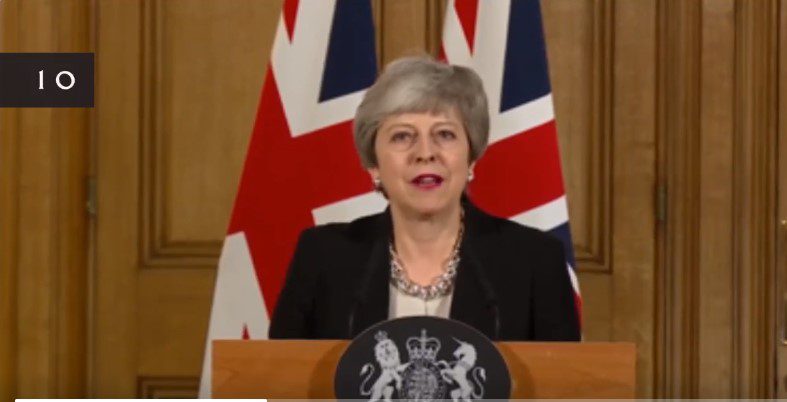The UK is to seek a further extension to Article 50 for “as short as possible” to secure a timely and orderly Brexit, UK Prime Minister Theresa May has said.
Speaking on the next steps for Brexit from Number 10, Downing Street, the prime minister also revealed that she is offering to sit down with the leader of the opposition, Labour party leader Jeremy Corbyn, to try and thrash out a deal that both Conservative and Labour party MPs can support.
In her public statement, the prime minister said: “I have just come from chairing seven hours of cabinet meetings focused on finding a route out of the current impasse.”
WATCH LIVE: PM @Theresa_May makes a statement on Brexit next steps at Downing Street https://t.co/zlZga6keb0
— UK Prime Minister (@10DowningStreet) April 2, 2019
May acknowledged that there are a number of people who are fed up with the delay and wish to leave with no deal next week. However, she said:
“I’ve always been clear that we could make a success of no deal in the long term – but leaving with a deal is the best solution.
So, we will need a further extension of Article 50; one that is as short as possible and which ends when we pass a deal. And, we need to be clear on what such an extension is for: To ensure that we leave in a timely and orderly way.
“This debate, this division, cannot drag on much longer. It is putting members of parliament and everyone else under immense pressure and it is doing damage to our politics.”
The prime minister said that the process the House of Commons has tried to lead “has not come up with an answer”, in spite of MPs’ efforts, and so she is taking action “to break the logjam”.
“I’m offering to sit down with the leader of the opposition and to try to agree a plan that we would both stick to to ensure that we leave the European Union – and that we do so with a deal.
Any plan would have to agree the current withdrawal agreement; it has already been agreed with the 27 other members, and the EU has repeatedly said that it cannot and will not be reopened.
“What we need to focus on is our future relationship with the EU.”
The prime minister said that the “ideal outcome of this process” would be to agree an outcome for a future relationship that delivers on the results of the referendum, which could be put to the House of Commons, and then next week’s European Council, for approval.
“However, if we cannot agree on a single unified approach, then we would instead agree a number of options for the future relationship that we could put to the house in a series of votes to determine which course to pursue.”
May said that the Government “stands ready to abide by the decision” of parliament but added “the opposition would need to agree to this too”.
